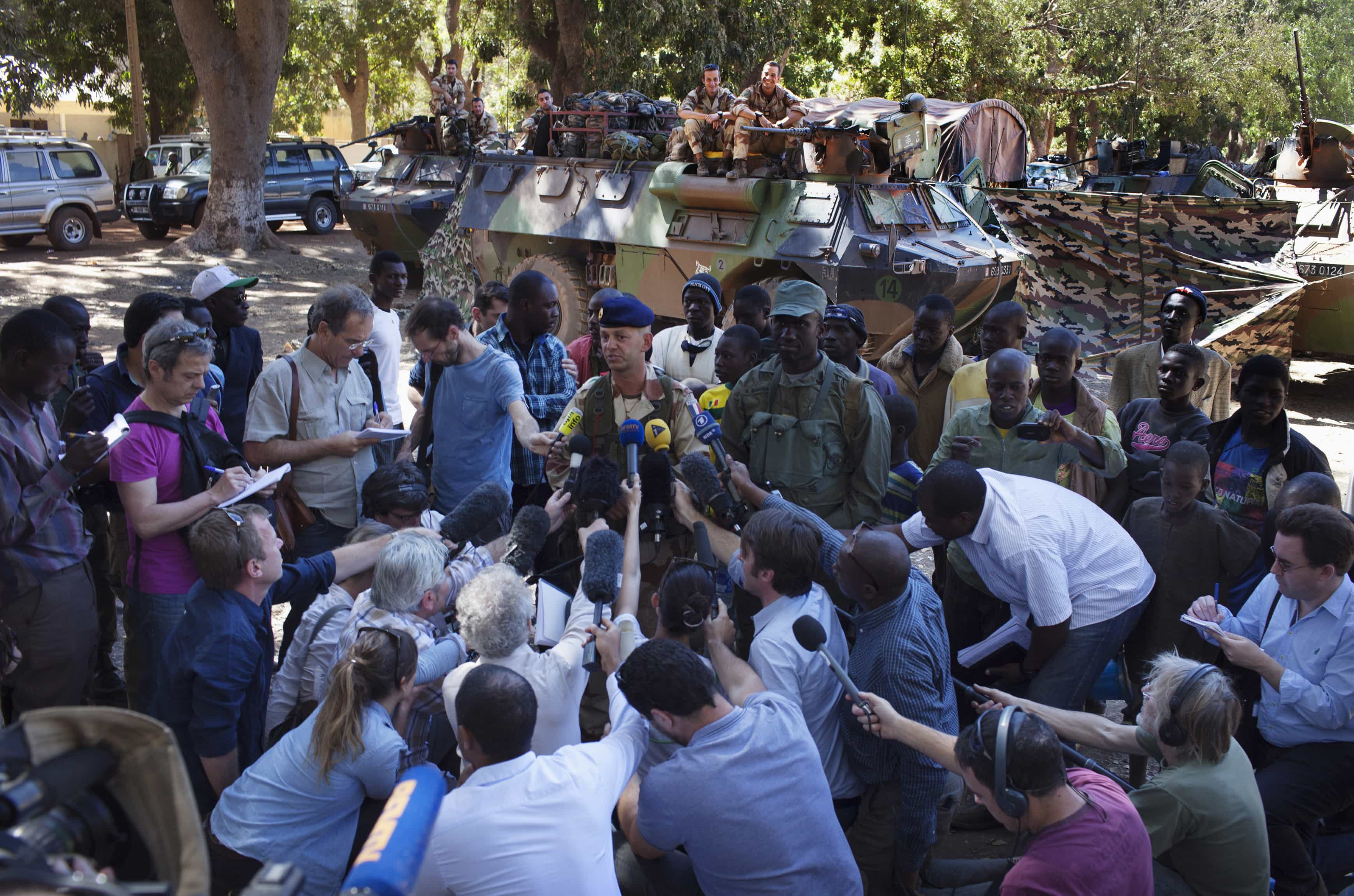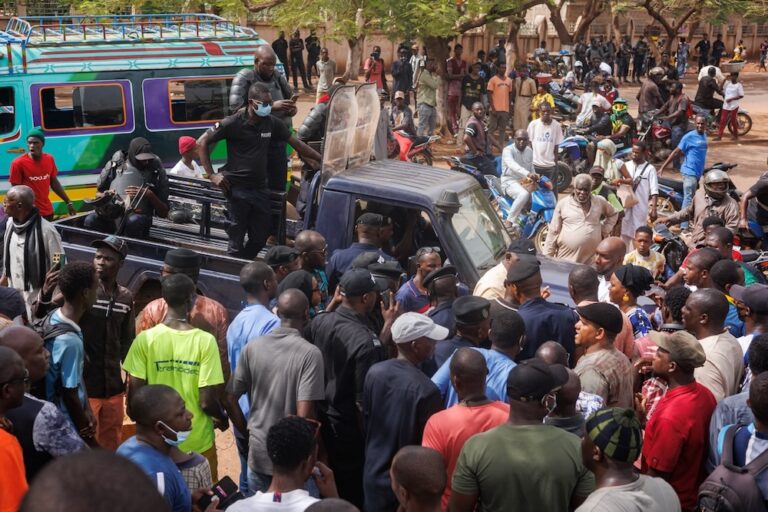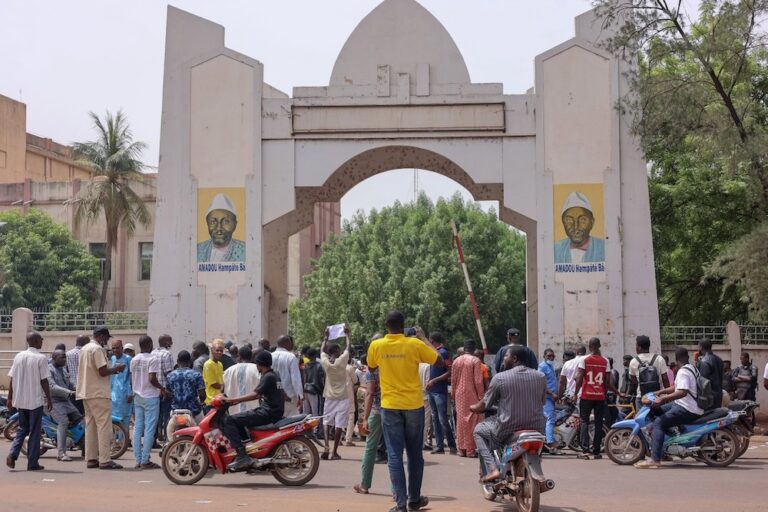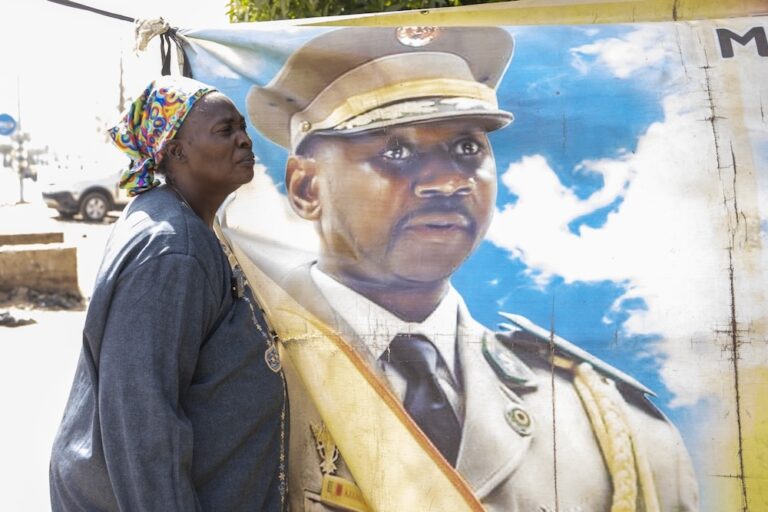Journalists with a French 24-hour news channel, TV5 Monde and Reuters were detained by soldiers for several hours on 8 February in Bamako. Ever since the start of the French military intervention in Mali, journalists have been having a great deal of difficulty in getting access to information, especially in the war zones.
(RSF/IFEX) – 11 February 2013 – Reporters Without Borders condemns the detention of several foreign journalists for several hours on 8 February in Bamako. The arrests, during which one was physically attacked, occurred when “Green Berets,” who carried out last March’s coup d’état, attacked the barracks of former President Amadou Toumani Touré’s “Red Beret” bodyguards.
“Assaulting and arresting journalists and confiscating their equipment constitute an unacceptable violation of freedom of information,” Reporters Without Borders secretary-general Christophe Deloire said. “The Green Berets, gendarmes and national guard deliberately sidelined journalists to prevent the circulation of photos and videos that would embarrass the new authorities. Such abuses must stop at once.”
Reuters photographer Benoît Tessier and two journalists with a French 24-hour news channel were at the entrance to the barracks in the Bamako district of Djicoroni when the Green Berets began their assault at around 9:30 am on 8 February.
Because he had photographed the attack, Tessier was roughed up and was taken to the National Youth Agency (SNJ) “for his safety.” The other two were also subsequently brought there, their equipment was seized or damaged and their mobile phones were confiscated. All three were finally released at around 1:30 pm.
Two TV5 Monde journalists, Guillaume Gouet and Pascal Priestley, were also arrested but were released more quickly as they did not have any photos of video of the assault.
Tessier told Reporters Without Borders: “We were outside the 3rd Parachute Regiment training camp in Djicoroni when Green Berets, gendarmes and national guard opened fire although only the families of the regiment’s members were inside the base and no Red Berets could be seen. When we came under fire, the two TV journalists entered the camp seeking cover. I stayed outside to take photos of the attack. I ended up raising my hands and then Green Berets, gendarmes and national guard members approached me.”
“When they realized I was a journalist and had photos, they tried to grab my camera and punched me several times. I ended up letting go of my camera. Four or five armed men took me to the SNJ, supposedly for my own safety. Then they confiscated my phone.”
“The two TV journalists were brought there an hour later. We were able call the French embassy with the mobile phone that one of them had managed to keep. We were finally released, but without our equipment. Thanks to the embassy defence attaché, my cameras were returned to me in the evening but without my memory cards.”
Ever since the start of the French military intervention in Mali, journalists have been having a great deal of difficulty in getting access to information, especially in the war zones. Reporters in Gao got some video footage of fighting for the first time during the past weekend when jihadists launched an unexpected counter-attack on the city. French troops quickly evacuated around 50 journalists to the airport.
Usually kept at a distance and sometimes roughed up, journalists have been the victims of obstruction by the authorities since the start of the intervention. Cities remain inaccessible for several days after they have been retaken and the fighting is over, and reporters are kept far from the front lines.
At the end of January, international news organizations accused the French authorities of allowing only French journalists to be embedded with their troops.
But media freedom violations had already been endemic in the south of the country since President Touré was ousted in military coup on 22 March 2012. When reporters were at the scene of the operation in Djicoroni on 8 February, the military authorities demonstrated their determination to prevent the international media from covering events and ensure that the outside world has to depend on military communiqués.
Malian military intelligence officers seized the equipment of two journalists with the French TV news channel France 24 on 31 January, when they were covering a demonstration by Red Berets demanding reincorporation into the Malian armed forces. Some equipment has still not been returned.



